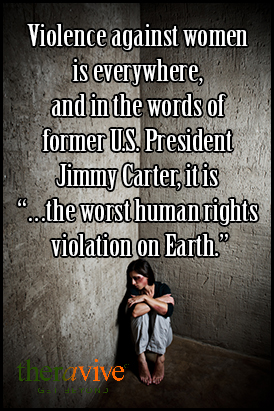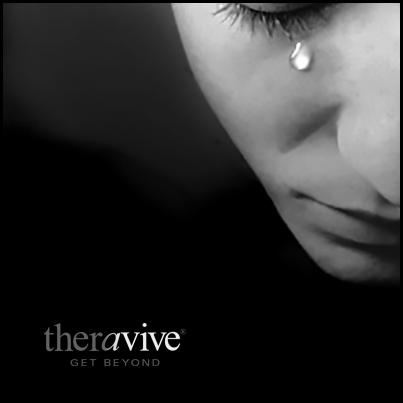 Violence and it's Impact on Women
Violence and it's Impact on Women
Society is growing up. Many parts of the world are experiencing great wealth from technology, entrepreneurship, oil, industrialization and so on. But the progress of society is held back by violent treatment of women. Today, violence in the forms of physical, sexual and emotional abuse runs rampant throughout the world. It is not restricted to certain countries, races, socioeconomic levels or religious groups. Violence against women is everywhere, and in the words of former U.S. President Jimmy Carter, it is “…the worst human rights violation on Earth.”1
Anytime a woman is subject to a violent act, she is stripped of the rights she is entitled to and has earned. But violence against women impacts more than gender demographics. According to the International Center for Research on Women, “Violence also thwarts global efforts to reduce poverty.”2 Therefore, no matter how far new found wealth promises to take nations, they will be crippled by the one thing they can’t seem to control: violence against women.
One Third of Women Globally are Impacted by Violence
While violence poses great risk to economics, the greater area of concern is the effects it has on abused women. The World Health Organization (WHO) reports that, “Physical or sexual violence is a public health problem that affects more than one third of all women globally.”3 A new report published in a partnership between WHO, the London School of Hygiene & Tropical Medicine and the South African Medical Research Council states that about 30 percent of women worldwide face violence at the hands of their intimate partners.
Nevertheless, coercive actions can happen outside of sexual relationships, too. In some parts of the world rape is used as a wartime weapon, while in many places cultural female genital mutilation is also a popular practice. In North America, intimate partner and non-partner violence is seen in the forms of physical assault, rape and stalking.4 Such violence may result in death, injury, depression, alcohol and substance abuse problems, sexually transmitted diseases, unwanted pregnancies and more.
Globally, only 7.2 percent of women claim they were assaulted by persons who were not their intimate partners. Unfortunately, even those who were not sexually involved with their attackers suffered from long term psychological challenges. According to WHO, this segment of the global population is “2.3 times more likely to have alcohol disorders and 2.6 times more likely to suffer depression or anxiety.” These numbers are actually higher than those who suffer from violence in intimate relationships ("Violence against women: a 'global health problem of epidemic proportions'", 2013).
The Director-General of WHO, Dr. Margaret Chan says, “These findings send a powerful message that violence against women is a global health problem of epidemic proportions.” Taking a close look at what this means for females in America reinforces the importance of asking the question: what can be done?
Violence against Women in North America
“We shouldn’t think that violence against women is only pervasive in the developing or conflict-ridden pockets of the world. Sexual violence happens in our own homes, and in our institutions,” says Eileen Alma of the International Developmental Research Centre in Canada. “Investigating and understanding gender power structures is an important element that can lead to combatting violence against women. That, and the absolute need for all of us to stop avoiding the reality and start helping each other.”5
People see North America as a place where equal rights are offered to all people, yet violence towards women is still a problem here. In fact, the study, Domestic Violence Against Women – An International Concern reports that in America, “40-51 [percent] of women experience some type of violence in their lifetime including child abuse, physical violence, rape and domestic violence.” In the United States, the overwhelming majority of these assaults (about four million per year) are carried out by an intimate partner. Similarly, in Canada, the annual prevalence of domestic violence can reach 23 percent and account for up to 10 percent of incidents that are categorized as “severe violence.”6
 Preventing Violence against Women
Preventing Violence against Women
Violence against women is preventable. When the rates of violence decrease, quality of life throughout the world should increase for everyone. To make this reality, violence against women needs to be addressed at every level of society, in sectors of education, business, health, communities and government. There needs to be a widespread agreement that violence towards women is intolerable.
More so, the negative effects of domestic violence and assault are preventable, too. Women who have experienced violence do not have to go through life with heavy senses of shame and depression. Mental health professionals play major roles in ensuring women overcome past abuse and are equipped to prevent future attacks.
The Role of Mental Health Professionals
Women who team up with mental health professionals can regain their sense of identity after traumatic experiences involving violence (Agnihotri, 2006). At first, working with a psychologist or psychiatrists can be uncomfortable. Women may feel vulnerable as they are asked questions about the abuse they suffered. But these questions are often simple and direct, encouraging the victim to discuss the incidents or regular occurrences. In providing honest answers, a victim may have a sense of freedom. Moving forward, the mental health professional can help her by treating any signs or symptoms of mental illness, offering resources about how to prevent future attacks and introducing her to support groups.
Mental health professionals are one piece of the prevention puzzle. Facts about violence against women need to be presented and people throughout the world need to be educated about the reality of this grave matter. With advancements in technology and the growth of wealth in many parts of the world, there should not be too many roadblocks to transmitting this information. When the world receives this information and addresses the issue appropriately, not only will women be liberated, but society at large will be stronger.
_________________________________________________________________________________________________________________________________
1 Serwer, A. (2014). Carter: Violence against women is 'worst human rights violation on Earth'. msnbc.com. Retrieved April 16, 2014, from http://www.msnbc.com/msnbc/carter-men-still-control-too-many-levers
2 Violence Against Women. International Center for Research on Women. Retrieved April 15, 2014, from http://www.icrw.org/what-we-do/violence-against-women
3 Violence against women: a 'global health problem of epidemic proportions'. (2013). World Health Organization. Retrieved April 15, 2014, from http://www.who.int/mediacentre/news/releases/2013/violence_against_women_20130620/en
4 Tjaden, P., & Thoennes, N. (2000). Full Report of the Prevalence, Incidence, and Consequences of Violence Against Women. National Criminal justice Reference Service. Retrieved April 15, 2014, from https://www.ncjrs.gov/pdffiles1/nij/183781.pdf
5 Violence Against Women. International Center for Research on Women. Retrieved April 15, 2014, from http://www.icrw.org/what-we-do/violence-against-women
6 Agnihotri, A., Agnihotri, M., Jeebun, N., & Purwar, B. (2006). Domestic violence against women – an international concern. Tortue, 16. Retrieved April 14, 2014, from http://www.irct.org/admin/public/dwsdownload.aspx?file=/files/filer/torturejournal/16_1_2006/page_30-40.pdf
Christie Hunter is registered clinical counselor in British Columbia and co-founder of Theravive. She is a certified management accountant. She has a masters of arts in counseling psychology from Liberty University with specialty in marriage and family and a post-graduate specialty in trauma resolution. In 2007 she started Theravive with her husband in order to help make mental health care easily attainable and nonthreatening. She has a passion for gifted children and their education. You can reach Christie at 360-350-8627 or write her at christie - at - theravive.com.